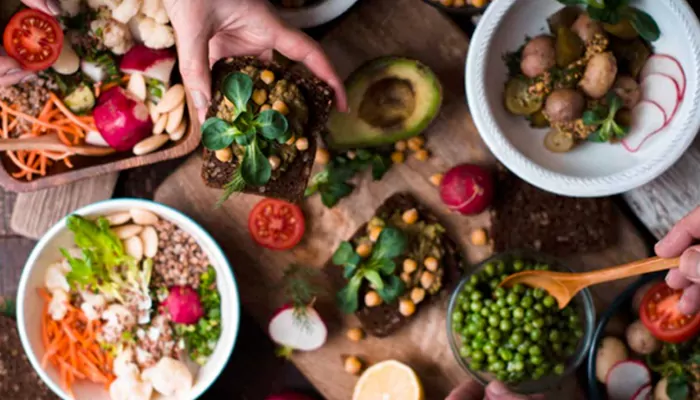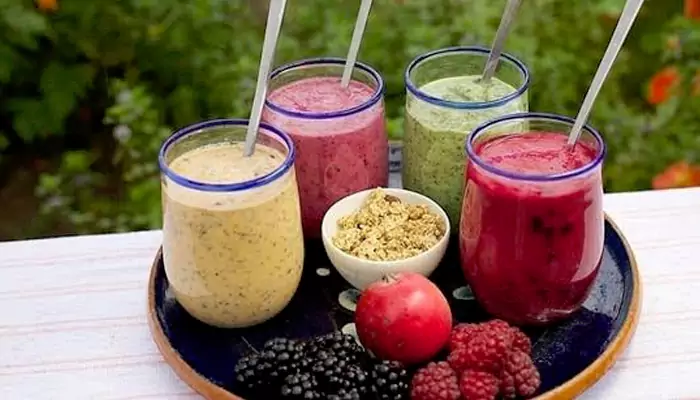The Magic of Fermentation – How to Make Your Own Kimchi, Sauerkraut and Kombucha
- Ishani Karmakar
- 1 year ago
- 4 minutes read

In recent years, the culinary world has seen a resurgence of interest in traditional fermentation processes.
From artisanal cheeses to sourdough bread, the allure of fermentation lies in its ability to transform simple ingredients into complex, flavourful, and health-boosting foods. Among the most popular fermented foods are kimchi, sauerkraut, and kombucha. These delicious and nutritious items are not only easy to make at home but also offer a myriad of health benefits.
The Benefits of Fermentation
Fermentation is a natural process where microorganisms like bacteria and yeast convert sugars and starches into easily digestible acids. This process not only preserves food but also enhances its flavour and nutritional value. Fermented foods are rich in probiotics, which are beneficial bacteria that support gut health, boost the immune system, and can even improve mood. Additionally, fermentation can increase the bioavailability of nutrients, making it easier for our bodies to absorb essential vitamins and minerals.
Kimchi
Ingredients
1 large napa cabbage
1 Korean radish (or daikon)
4 green onions
1/4 cup sea salt
1 tablespoon grated ginger
1 tablespoon minced garlic
3 tablespoons Korean red chili flakes (gochugaru)
1 tablespoon sugar
Instructions
Prepare the Cabbage
Cut the cabbage into quarters and remove the core. Chop into bite-sized pieces and place in a large bowl. Sprinkle with sea salt and massage the cabbage until it starts to soften. Add enough water to cover the cabbage and let it sit for 1-2 hours.
Rinse and Drain
Rinse the cabbage thoroughly to remove excess salt. Drain well and set aside.
Make the Paste
In a small bowl, combine the ginger, garlic, chili flakes and sugar to create a spicy paste.
Mix the Vegetables
Cut the Korean radish into matchsticks and chop the green onions into 1-inch pieces. Add the drained cabbage, radish, and green onions to a large bowl. Add the spicy paste and mix everything together until the vegetables are well coated.
Ferment
Pack the mixture tightly into a squeaky clean glass jar, pressing down to remove air bubbles. Leave about an inch of space at the top. Seal the jar and let it ferment at room temperature for about 1-5 days. Taste daily to check if it has reached your desired level of tanginess. Once fermented, store the kimchi in the refrigerator.
Sauerkraut
Ingredients
1 medium green cabbage
1 tablespoon sea salt
Instructions
Shred the Cabbage
Remove the outer leaves of the cabbage and set aside. Cut the cabbage into quarters, remove the core, and shred finely.
Salt the Cabbage
Place the shredded cabbage in a large bowl and sprinkle with sea salt. Massage the cabbage with your hands for about 10 minutes, until it releases its juices and becomes soft.
Pack the Jar
Pack the salted cabbage into a clean glass jar, pressing down firmly to submerge the cabbage in its own brine. Use the reserved outer leaves to cover the top, creating a barrier to keep the shredded cabbage submerged.
Ferment
Seal the jar and let it sit at room temperature for 1-4 weeks, depending on your taste preference. Check the sauerkraut regularly, pressing down to keep the cabbage submerged in the brine. Once it reaches your desired flavour, store the sauerkraut in the refrigerator.
Kombucha
Ingredients
4 cups water
4 black or green tea bags
1 cup sugar
8 cups cold water
1 SCOBY
1 cup starter tea (from a previous batch of kombucha or store-bought unflavoured kombucha)
Instructions
Brew the Sweet Tea
Boil 4 cups of water and add the tea bags. Steep for 5-10 minutes, then remove the tea bags and stir in the sugar until dissolved. Let the tea cool to room temperature.
Combine the Ingredients
In a large glass jar, combine the sweetened tea with 8 cups of cold water. Add the SCOBY and the starter tea.
Ferment
Cover the jar with a clean cloth and secure with a rubber band. Let it ferment at room temperature, out of direct sunlight, for 7-10 days. The longer it ferments, the more tangy and less sweet it will become.
Fermentation is a magical process that transforms simple ingredients into flavourful, health-boosting foods and beverages. These fermented delights are packed with probiotics, which can improve digestion, boost immunity, and enhance overall health. So why not give fermentation a try? Start with one of these recipes and enjoy the journey of creating your own delicious, homemade fermented foods.











